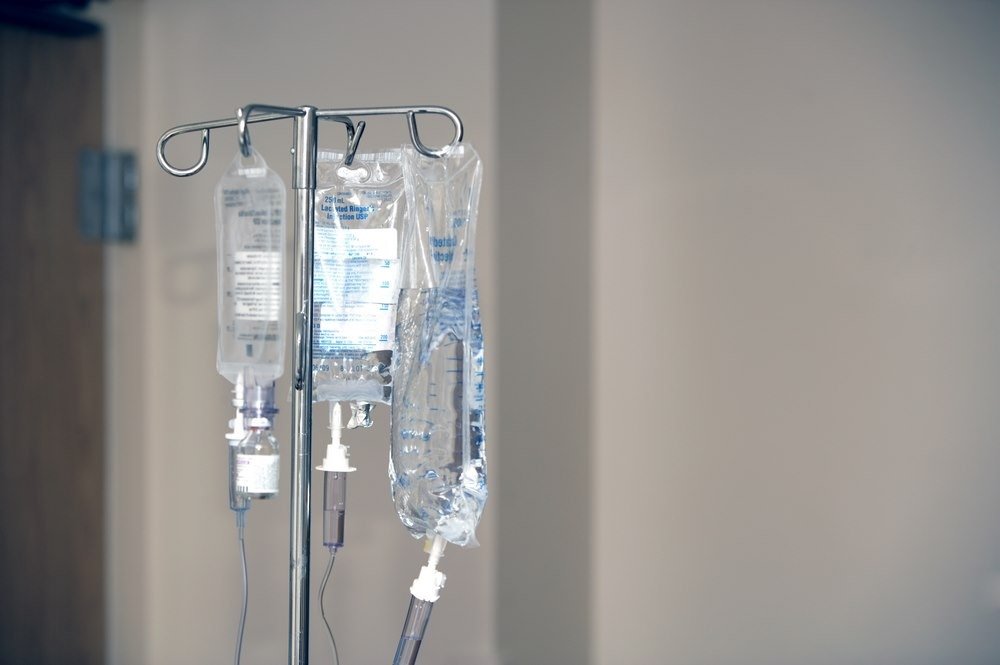Treatment and management of severe dehydration

If any of the above mentioned symptoms of severe dehydration are observed, it is best to rush to the hospital for acute management. Also cases where oral rehydration therapy is not feasible for example, in persistent vomiting or inability in swallowing, timely hospital management is advised.
Plain water intake cannot reverse symptoms of severe dehydration. In addition to volume depletion, severe dehydration also involves an electrolyte imbalance. Deranged levels of sodium, potassium, magnesium, and calcium may be involved in precipitating many of the symptoms in such a case. Severe dehydration is treated with fluid replenishment via an intravenous (IV) line. This method has an advantage in administrating fluids and electrolytes to unconscious patients and in patients where the oral route administration is contraindicated. The best choice for IV administration is Ringer’s lactate (RL) solution. Normal saline can also be used.
Severe dehydration can take around 2-3 weeks of hospital-based treatment for full recovery. This involves treating the underlying precipitating factors of dehydration. During the hospital stay, the patient’s fluid intake and urine output is closely monitored.
Precaution:
- Rapid administration through IV line can cause edema, that is, localized collection of the fluid contents in the body. To avoid this complication, solutions are given by slow infusion.
- A proper sterilized IV apparatus should be used. Infected needles and IV line can transmit a myriad of infections.
- Blood pressure should be monitored with this therapy.
